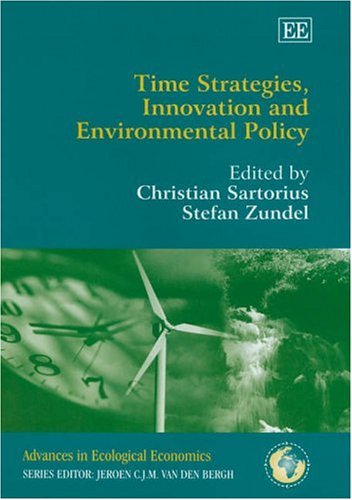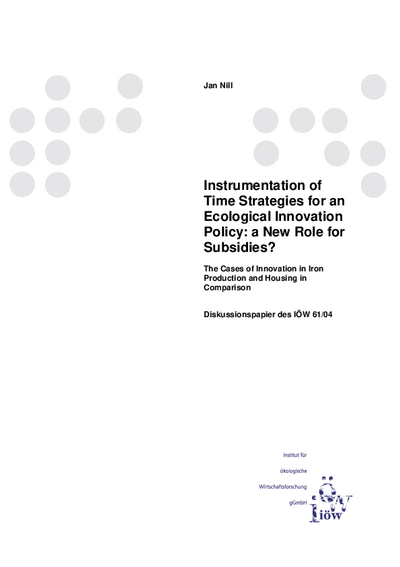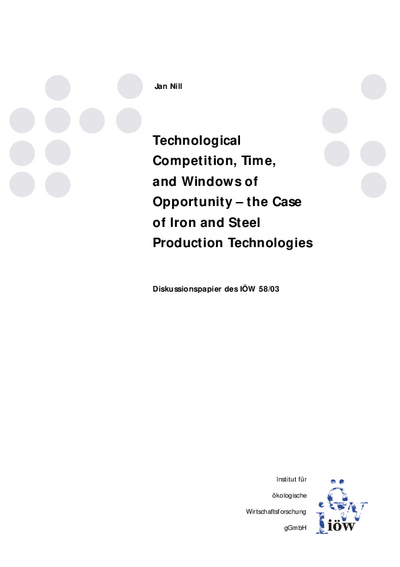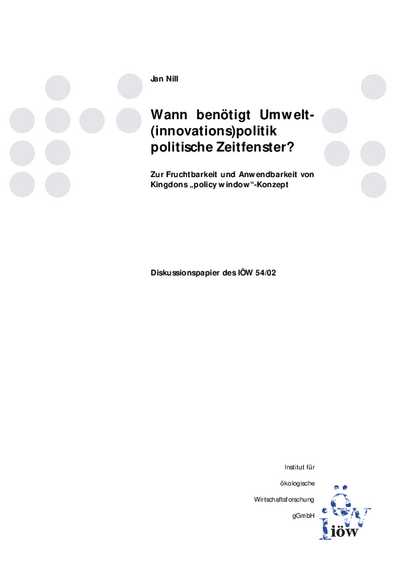Innovation, Time, Sustainability - Time dependent political strategies for the enhancement of ecological innovations Time dependent political strategies for the enhancement of ecological innovations
Modern evolutionary economics depicts the creation and implementation of innovations as an unsteady process. Phases of radical change of technological paradigms alternate with phases of incremental improvement in given technologies. Technological paradigms create patterns for further technological progress, therefore characterising technological development as potentially path dependant. The initial conditions of technological progress forms a framework for further incremental development. Periodically such paradigms are exhausted and novel / unforeseen technological solutions appear.In such phases, during which a particular paradigm dominates, alternative technological solutions have little chance of market success. Economies of scale and scope, spill over effects within networks, regulatory frameworks, which are often specified only for a given technology , discriminating others, create support for the dominant technology (lock-in effect), impeding alternative technologies (lock-out effect). Innovations with positive ecological effects are thought to be especially handicapped during this time. Also though, during times of change, when the current technological framework comes to an end, and other technological solutions have an opportunity to break the lock-in , ecological sound technologies are again often hindered. One reason for this hindrance is that due to the lack of internalisation of negative external effects. The entrepreneur can not fully appropriate the benefits of his ecological innovation. Obviously timing is an important factor for the market success of technologies, especially technologies with a ecologically sound performance, but also important for governmental interventions to support such technologies. After initial examination two initial guidelines for the combination of innovation and environmental policy can be expressed. One, that within phases of domination by a technological paradigm the government could find it almost impossible to establish a new ecological paradigm due to lock-in effects. Secondly therefore, it might be better to stimulate a variety of possible alternative technological solutions for a given problem, so that there will be alternatives at hand when the opportunity for change arises. During the time when a window of opportunity is open even small political inducements might be sufficient to change the direction of technological progress in an environmentally sound way. The main purpose of the project is to develop and elaborate on time based strategies of governmental action in favour of environmental sound innovations.







